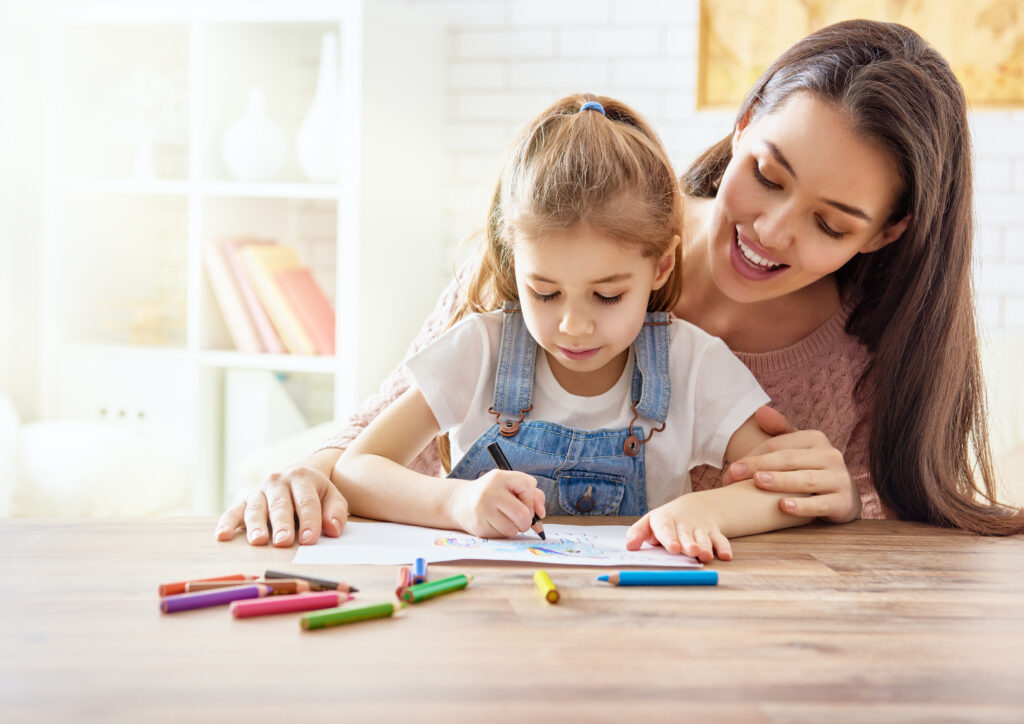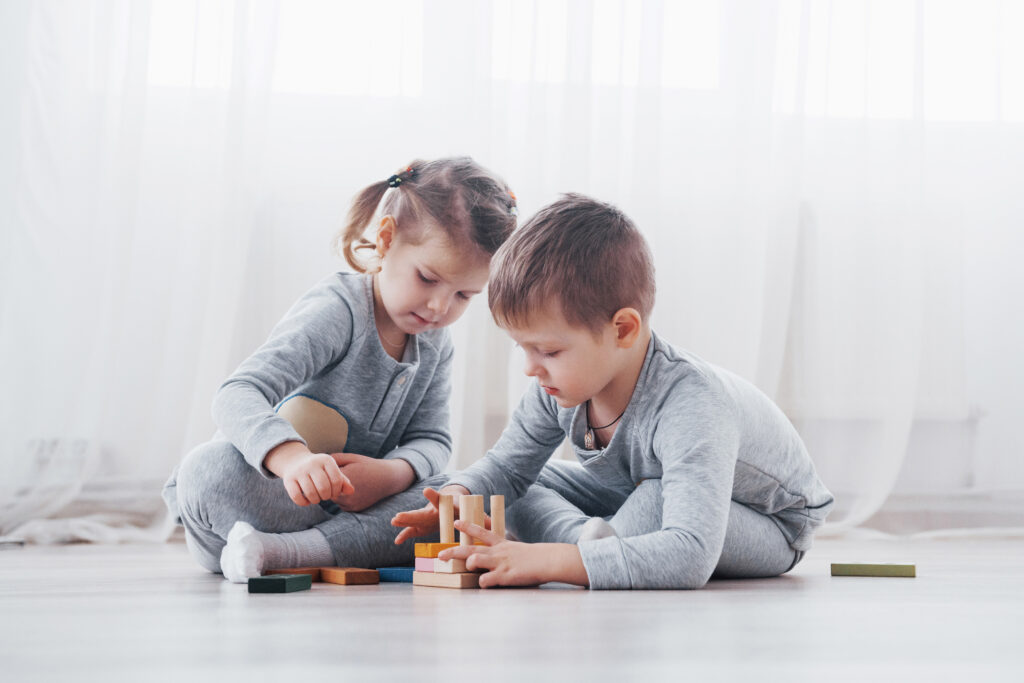
All of life is an eternal learning process. We learn to speak, to walk and to behave socially. We go to school, we learn a profession and even then we continue to develop. In everyday life, we even learn frequently without noticing it, because we gather experiences almost permanently that change our thoughts and actions. Learning processes therefore take place virtually all the time, which makes them a complex construct that we would like to look at in a little more detail below.
Have you ever wondered how such a learning process actually works, why it's so important and how you can improve your Children optimal learning can support? So can we! And that's exactly why we set out to find the answers.
Psychologists like to define learning as a change in behavior as a result of experience. A learning process is therefore always preceded by experiences. Certain situations that challenge us lead us to acquire skills and knowledge in order to master them.
One of the first psychologists to take a closer look at this topic was John B. Watson. He even went so far as to define all the behaviors we display as the results of learning processes. This later developed into what is known as behaviorism.
Every learning process can be divided into five phases. It starts with access to the information that forms the basis. Logically, in order to learn something, you first have to find out how to get the necessary knowledge. The mediators can be fellow human beings, school, books or the Internet - to name just a few examples.
Once you have collected all the important facts, you analyze them. You make connections to things that you have already learned and that are related to them. In this way, you restructure your previous knowledge and integrate the newly learned information in the right place.
Then you move into the third phase, where you achieve something very concrete. So, for example, you have successful acquired a new skill or simply knowledge that is now stored in your brain. In the fourth and final phase, you can finally apply all this in practice. You transfer your theoretical knowledge into everyday life and put it into practice as soon as you find yourself in a situation that requires exactly that.

The basic principle of the learning process is the same at any age. Both children and adults learn by gaining experience and acquiring knowledge in a targeted manner. While adults learn primarily in everyday life, the learning process for children takes place mainly in educational institutions. This begins in kindergarten and continues through to university or vocational school.
How successful the learning process of the little ones ultimately is depends first of all on how interested they are. Are they open to learning, do they listen attentively and want to understand connections? Great, these are important basics!
However, the interaction between learners and teachers is at least as important. The students must feel comfortable and secure and must not be afraid to ask questions. The teacher's task, on the other hand, is to prepare the topics in a way that is clearly understandable and comprehensible. If all this is in place, nothing stands in the way of a successful learning process for children.
One thing is logical: If man had not learned new things again and again in his history, we would not live in this modern world that we know today. Of course, that was not the goal at that time, but first and foremost survival. Our ancestors have always developed new behaviors, thanks to which they could better protect themselves from danger, obtain food and make it edible, and cure diseases.
Nowadays, children's learning is primarily aimed at taking a firm place in society, later standing on one's own two feet and pursuing a profession that gives pleasure. None of this is possible without learning processes. For adults, they mainly relate to career advancement and learning about one's own desires and Needs as well as their fulfillment. A life without learning means standstill and that is simply unthinkable for most.
Of course, in order to help your child learn successfully, you first need to understand how the learning process actually works and how you can tell that the learning is really happening in a purposeful way. What you also need is a set of strategies and tactics that support the learning process and an understanding of when to use which of them. If you choose the wrong one, the successes will not happen and your child's frustration level will rise.
In total, there are six interactive components of learning: attention, MemoryLanguage, Processing and Organizing, Graphomotor Skills, and Higher Order Thinking. What this is all about is explained below.
Being attentive is probably the most important basic requirement for a successful learning process. If your child doesn't listen and keeps digressing, it will be very difficult for him to absorb new information. Your job, therefore, is to package the topic as interestingly as possible - at best, in such a way that he or she can build a connection to it. This will make it easier for your child to stay on the ball.
Of course, in order for newly learned material to remain in the mind for a long time, it must be transferred to the memory. This is a complex process that passes through a total of three systems: short-term memory, working memory and long-term memory.
In short-term memory, for example, we store telephone numbers or codes that we only need to remember until we have entered them. In working memory, we park information that we need to complete the task we are doing. Knowledge that we hold in our heads for a long period of time or even our entire lives eventually passes into long-term memory.
We all have these three systems, but they work much harder in children. After all, they learn much more than adults in everyday life, and all the knowledge that pours down on them in school is added to this. Once your child has understood a fact, this does not mean that he or she will remember it for the long term. Just a short time later, they will be flooded with new information, and what they have heard before can be lost.
You can help your child remember things anyway by putting them in a meaningful context or linking them to knowledge they have already firmly acquired.
Language is the most important means of transmitting information. This transmission can take place in two ways: expressively and receptively. We use expressive language when we speak or write - in other words, when we express ourselves. We use receptive language to take in information, for example, by reading or listening.
If your child has language problems, learning will be more difficult for him than for others. If this is the case, it is incredibly important that you work on these deficits together with your offspring. Creative writing is a great exercise for this.
Encourage your child to think up stories and write them down. Proceed systematically and let them collect ideas first. Then organize them and finally put them into words.
You will emphasize sentence structure and grammatical rules. If your child makes mistakes, have him write them down and make a list. He can then use this list again and again and correct mistakes on his own.

We process and organize information simultaneously and successively. If we proceed simultaneously, we arrange things spatially, e.g. when we solve a puzzle. Successively, we place them in a temporal context and put them in an order. We do this, for example, when we solve mathematical tasks or form sentences.
Simultaneous and successive thinking are therefore incredibly important so that your child can complete basic tasks such as writing essays or solving equations without any problems. If he still finds this difficult, then step-by-step instructions can help him along.
Graphomotor skills describe our writing movements, including coordination, the movements that take place in the wrist and fingers, and the rhythm that we develop in the process. If your child simply cannot motivate himself to solve written tasks, this may well be because he has problems with graphomotor skills.
Of course, from now on, he cannot complete all tasks orally. However, they will still have to write tests and exams at school. Discussions with the teachers about your child's graphomotor problems are then particularly important so that they take them into account. Perhaps there is also the chance to make one or the other oral performance control possible.
Higher Order Thinking goes beyond mere memorization. It's more about understanding the new information and actively using it to solve certain problems. Thanks to HOT, your child is able to see the "big picture", question things and visualize issues. It virtually crowns the learning process.
We humans - no matter what our age - acquire knowledge and skills in different ways: formally, non-formally and informally. Let's now take a look at what this is all about together.
Formal learning takes place in educational institutions such as school or university. It takes place in a structured way by trained teachers and we complete it with certain qualifications and certificates.
Non-formal learning also takes place in a structured way and sometimes even in educational institutions. We take advantage of educational opportunities beyond school and the like, e.g. from our employers, non-profit providers or social partnership organizations. However, we do not necessarily acquire official qualifications in the process. Independent learning - for example, with learning software or apps - also falls into this category.
Everything that we learn casually in everyday life is considered informal. It's a natural part of family life, the job, or leisure time. So we don't consciously perceive it as an expansion of our knowledge or skills. Informal learning accounts for a whole 70 % of our learning processes.
In order to provide your child with the best possible learning support, one thing above all is important: interest. If the child simply has no interest in the subject matter and cannot access it, it will be difficult to motivate him or her to acquire knowledge. The way in which it is conveyed is therefore at least as important. A learning process is only successful if your child can really understand the facts, put them into context and put them into practice.
We will show you how you can help your offspring in concrete terms in our Learning e-book!

